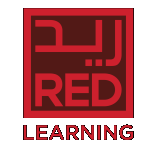Human resource professionals play a pivotal role in facilitating communication, fostering employee engagement, and ensuring organizational effectiveness within the diverse and multicultural landscape of the United Arab Emirates (UAE). In this context, the importance of human resource personnel possessing proficiency in the Arabic language cannot be overstated. Here are several reasons why:
Effective Communication: Arabic is the official language of the UAE, and while English is widely spoken, many employees, particularly in certain sectors or among certain demographics, may prefer or exclusively communicate in Arabic. Human resource personnel who are fluent in Arabic can effectively communicate with all employees, regardless of their language preference, ensuring clear understanding of policies, procedures, and organizational goals.
Cultural Sensitivity: The UAE is home to a diverse population representing various nationalities, cultures, and backgrounds. Understanding Arabic language and culture enables HR professionals to navigate cultural nuances, demonstrate respect for local customs and traditions, and foster a more inclusive and harmonious work environment.
Enhanced Employee Relations: Being able to converse with employees in their native language fosters trust, rapport, and stronger relationships. Employees feel more comfortable expressing concerns, sharing feedback, and seeking assistance when HR personnel can communicate with them in Arabic. This contributes to higher employee satisfaction and engagement levels.
Compliance with Legal Requirements: Arabic is the language of legal documentation and government communication in the UAE. Human resource professionals may need to interact with government agencies, review legal documents, or draft employment contracts in Arabic. Proficiency in Arabic ensures compliance with legal requirements and facilitates smooth interactions with regulatory authorities.
Recruitment and Talent Management: Arabic language skills can be invaluable during the recruitment process, especially when sourcing candidates from local talent pools or conducting interviews with Arabic-speaking applicants. HR professionals who speak Arabic can better assess candidates’ qualifications, cultural fit, and communication skills, leading to more effective hiring decisions.
Business Networking and Representation: In the UAE’s business landscape, networking and building relationships are essential for organizational success. Arabic-speaking HR professionals can engage with local stakeholders, participate in industry events, and represent the company with confidence, contributing to business development and partnerships.
Career Advancement Opportunities: For HR professionals working in the UAE, possessing Arabic language skills can open doors to career advancement opportunities. Companies value bilingual professionals who can bridge language barriers, manage diverse teams, and support organizational objectives effectively.
In conclusion, proficiency in Arabic language equips human resource personnel with the essential tools to communicate effectively, navigate cultural diversity, ensure legal compliance, and contribute to organizational success within the unique context of the UAE’s multicultural environment.
تلعب الموارد البشرية دورًا حيويًا في تيسير التواصل، وتعزيز مشاركة الموظفين، وضمان فعالية المؤسسات ضمن الساحة الثقافية المتنوعة والمتعددة الثقافات في دولة الإمارات العربية المتحدة (الإمارات). وفي هذا السياق، لا يمكن التشديد بما فيه الكفاية على أهمية امتلاك الموارد البشرية للمهارات اللغوية في اللغة العربية. وفيما يلي عدة أسباب توضح أهمية ذلك:
التواصل الفعّال: اللغة العربية هي اللغة الرسمية في الإمارات، وعلى الرغم من انتشار اللغة الإنجليزية، فإن العديد من الموظفين، خاصة في بعض القطاعات أو بين فئات معينة من السكان، قد يفضلون أو يتواصلون حصريًا باللغة العربية. وبإمكان الموارد البشرية الذين يجيدون اللغة العربية التواصل بفعالية مع جميع الموظفين، بغض النظر عن تفضيلات لغتهم، مما يضمن فهمًا واضحًا للسياسات والإجراءات وأهداف المؤسسة.
الحساسية الثقافية: الإمارات تضم مجتمعًا متنوعًا يمثل جنسيات وثقافات وخلفيات مختلفة. فهم اللغة والثقافة العربية يمكّن الموارد البشرية من التعامل مع الدقائق الثقافية، وإظهار الاحترام للعادات والتقاليد المحلية، وتعزيز بيئة عمل أكثر تضمينًا وانسجامًا.
تعزيز علاقات الموظفين: القدرة على التحدث مع الموظفين بلغتهم الأم تعزز الثقة والعلاقات القوية. يشعر الموظفون بالراحة أكثر في التعبير عن مخاوفهم وتبادل الآراء وطلب المساعدة عندما يستطيع موارد البشرية التواصل معهم باللغة العربية. وهذا يسهم في زيادة مستويات الرضا والارتياح لدى الموظفين.
الامتثال للمتطلبات القانونية: اللغة العربية هي لغة الوثائق القانونية والتواصل الحكومي في الإمارات. قد تحتاج الموارد البشرية إلى التفاعل مع الجهات الحكومية، ومراجعة الوثائق القانونية، أو صياغة عقود العمل باللغة العربية. إتقان اللغة العربية يضمن الامتثال للمتطلبات القانونية ويسهل التفاعل بسلاسة مع السلطات التنظيمية.
التوظيف وإدارة المواهب: يمكن أن تكون مهارات اللغة العربية قيمة خلال عملية التوظيف، خاصة عند البحث عن المرشحين من حمامات المواهب المحلية أو إجراء المقابلات مع المتقدمين الناطقين باللغة العربية. يمكن للموارد البشرية الذين يتحدثون العربية تقييم مؤهلات المرشحين وملاءمتهم الثقافية ومهارات التواصل بشكل أفضل، مما يؤدي إلى اتخاذ قرارات توظيف أكثر فعالية.
التواصل والتمثيل التجاري: في الساحة التجارية في الإمارات، التواصل وبناء العلاقات أمر أساسي لنجاح المؤسسات. يمكن للموارد البشرية الناطقين باللغة العربية التفاعل مع الجهات المعنية محليًا، والمشاركة في الفعاليات الصناعية، وتمثيل الشركة بثقة، مما يسهم في تطوير الأعمال والشراكات.
فرص التقدم المهني: بالنسبة للموارد البشرية العاملين في الإمارات، فإن امتلاك مهارات اللغة العربية يمكن أن يفتح الباب أمام فرص التقدم المهني. تقدر الشركات المحترفين ذوي اللغة المزدوجة الذين يستطيعون تخطي حواجز اللغة، وإدارة الفرق المتنوعة، ودعم أهداف المؤسسة بكفاءة.
بالختام، يجهز إتقان اللغة العربية الموارد البشرية بالأدوات الأساسية للتواصل بفعالية، والتعامل مع التنوع الثقافي، وضمان الامتثال القانوني، والمساهمة في نجاح المؤسسات ضمن السياق الفريد للبيئة المتعددة الثقافات في الإمارات.




